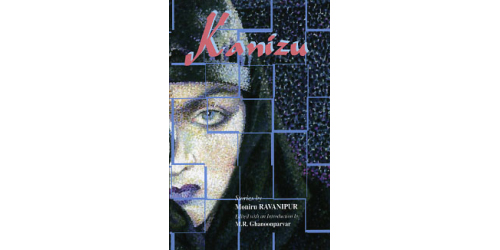
- Title: Kanizu
- Author: Moniru Ravanipour
- Series: Contemporary Iranian Fiction
- Genre: Short Story Collection
- Publisher: Niloofar
- Release Date: 1988
- Noteworthy: Southern literature, magic realism
- Available in other languages: Yes
[tr. M. R. Ghanoonparvar, Mazda Publishers, 2004]
If the mermaid curses, everyone will go down to the sea bottom, somewhere full of corals and star-fish. They stay there in the water, remain in mermaid houses and grieve. “You’ve seen the sea water comes up sometimes,” Grandmother used to say at times she felt happy, “This is when all fishermen begin to cry at the bottom of the sea, for they are missing their homes.
God I wish the moon bursted! God I wish mermaids died!
Grandmother is a fish. She is half-fish. The moon has risen and there is no one to madden her anymore. The mermaid has died somewhere on soil. At times she felt happy, Grandmother used to say, “mermaids cannot go far from the sea. Now I am sitting before her half-human side. Grandfather will not return ever again. He resides among the corals and grieves. And I am afraid that one day Grandmother may jumps into the water and become the mermaids’ grandmother.
KANIZU is a collection of nine short stories: “Kanizu,” “The Long Night,” “Parshang” and “The Gray Friday” have realistic settings, whereas “The Blue Inhabitants of the Sea,” “The Yellow Peacocks,” “The Sea in the Vineyards,” “Mana, Kind Mana” and “Mashang” enjoy an atmosphere of magic realism with traces of surrealism and symbolism.
The stories are set in Southern Iran and nurtured by Southern literary conventions in which the protagonists are mainly women who play more outstanding roles. The men of the stories are nameless and chosen by women, unless they reveal dictatorial behaviors and are hence omitted from the scene. Women in Ravanipur’s stories initiate self-chosen love, meanwhile they are also rebellious, independent and prone to their instincts. Death is an inseparable element of each story that is also marked by a latent nihilistic philosophy.
Ravanipour is a remarkably naturalist writer that pursues magic realism in the majority of her works. The woman-writer figure in her stories first appears in this collection.
Her choice of point of view is also unique. “Mashang” is, for instance, narrated from the point of view of a dead woman.


Leave a Reply